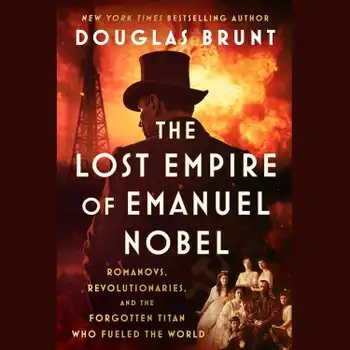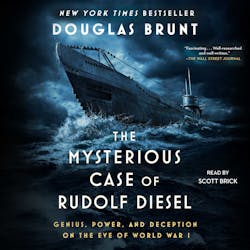From the author of the New York Times bestselling The Mysterious Case of Rudolf Diesel comes the enthralling hidden history of one of the world’s most successful business titans, a rival to the Rockefellers and the Rothschilds, whose legacy was erased in the aftermath of the Russian Revolution.
After the tsar, Emanuel Nobel was likely the wealthiest man in early 20th-century Russia—one of the wealthiest in the world. He and his family grew the Russian petroleum industry into a behemoth that surpassed even John D. Rockefeller’s Standard Oil. The Nobels imported the best practices from America and built on them, transforming every aspect of the industry. Though Emanuel’s uncle Alfred would become world famous thanks to his creation of the Nobel Prize, the more successful Nobels in Russia have been largely forgotten. The reason why is one of history’s most gripping untold stories.
Working in the oil fields of southern Russia at the same time as Emanuel was a troubled young man from a peasant family in Georgia. Educated to be a priest, his life took a different path when he discovered the revolutionary ideas of Karl Marx. In and out of prison in Siberia, charismatic and committed, always at the center of a fight, this young man would become known to the world as Joseph Stalin, a leader of the Revolution and eventually one of the most brutal dictators in history. Directly in Stalin’s crosshairs was Emanuel Nobel, who represented everything Stalin loathed about capitalism. As the world turned upside down, Emanuel began to plan a life-or-death escape from Russia. But would he make it out in time? And what would happen to the empire he and his family had built over three generations?
Sweeping across more than a hundred years of history, from the dawn of the Victorian Age to World War I and the Russian Revolution, this captivating book chronicles one of the most influential men in history, whose name has been stricken from memory, and returns him thrillingly to life.



